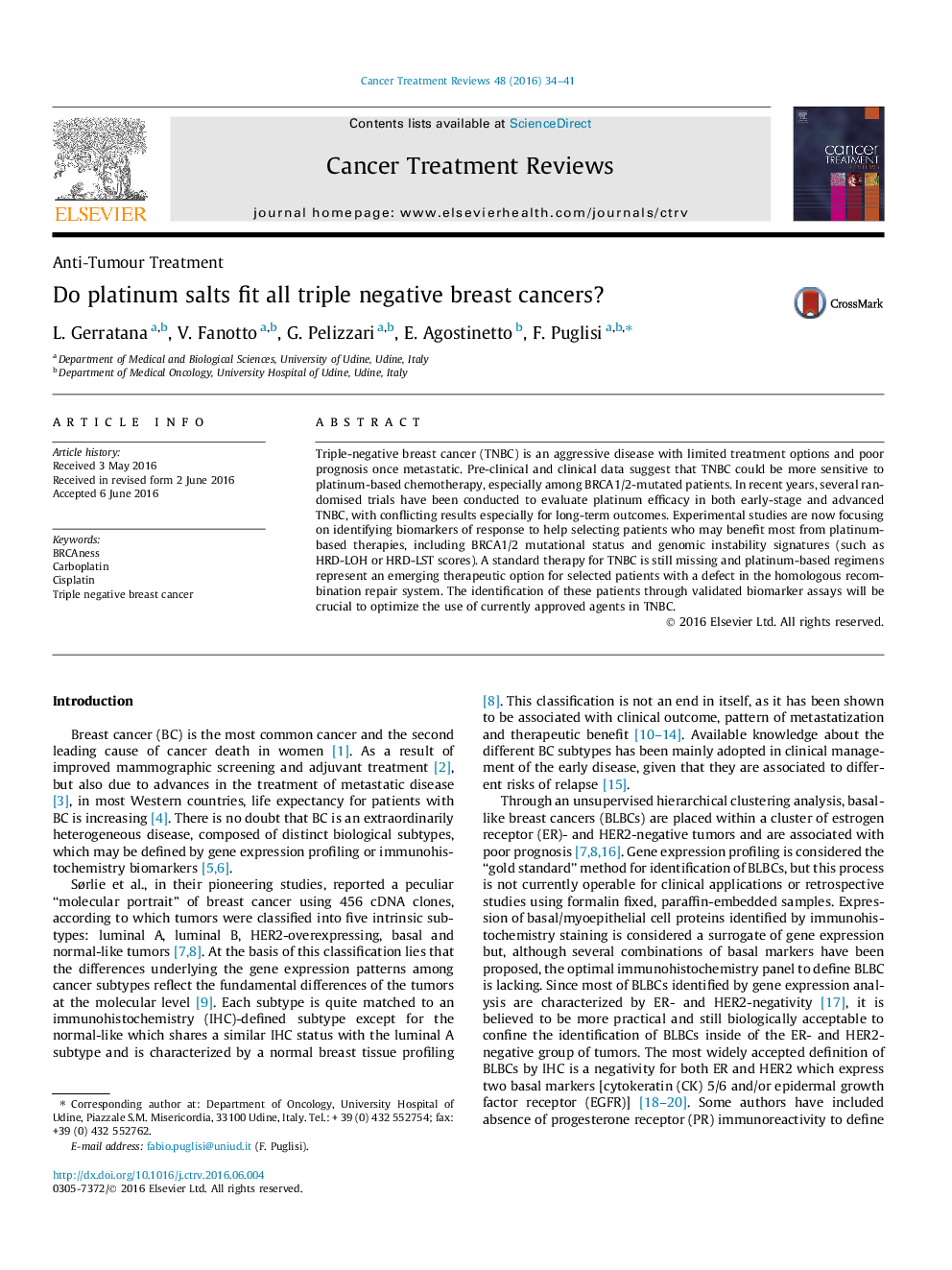| Article ID | Journal | Published Year | Pages | File Type |
|---|---|---|---|---|
| 3979763 | Cancer Treatment Reviews | 2016 | 8 Pages |
•The phenotype of BRCA wild-type TNBC often resembles the one of BRCA-related cancer.•BRCAness can be caused by epigenetic alterations or a RAD51 complex impairment.•Rearrangements analysis by high-throughput technologies predict response to platinum.•In neoadjuvant setting adding carboplatin improves pCR rates selectively in TNBC.•First-line carboplatin improves response rate only in BRCA1/2-mutated TNBC.
Triple-negative breast cancer (TNBC) is an aggressive disease with limited treatment options and poor prognosis once metastatic. Pre-clinical and clinical data suggest that TNBC could be more sensitive to platinum-based chemotherapy, especially among BRCA1/2-mutated patients. In recent years, several randomised trials have been conducted to evaluate platinum efficacy in both early-stage and advanced TNBC, with conflicting results especially for long-term outcomes. Experimental studies are now focusing on identifying biomarkers of response to help selecting patients who may benefit most from platinum-based therapies, including BRCA1/2 mutational status and genomic instability signatures (such as HRD-LOH or HRD-LST scores). A standard therapy for TNBC is still missing and platinum-based regimens represent an emerging therapeutic option for selected patients with a defect in the homologous recombination repair system. The identification of these patients through validated biomarker assays will be crucial to optimize the use of currently approved agents in TNBC.
